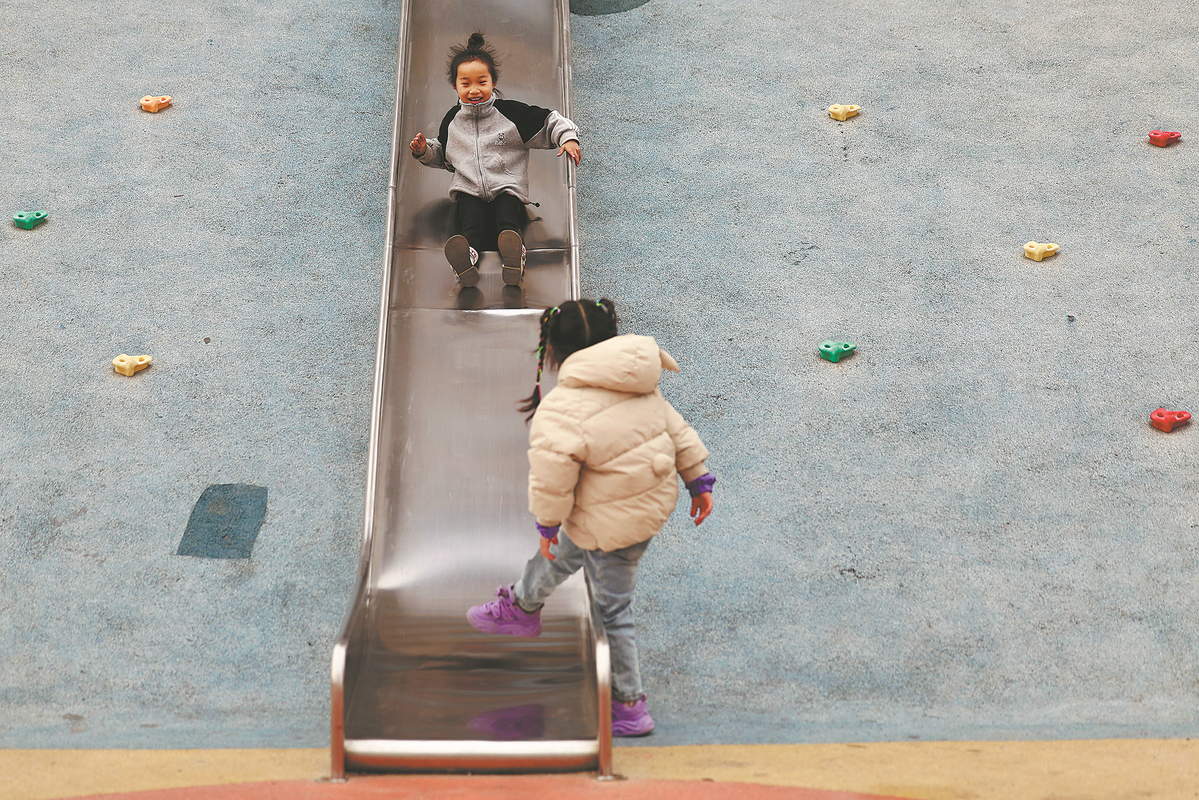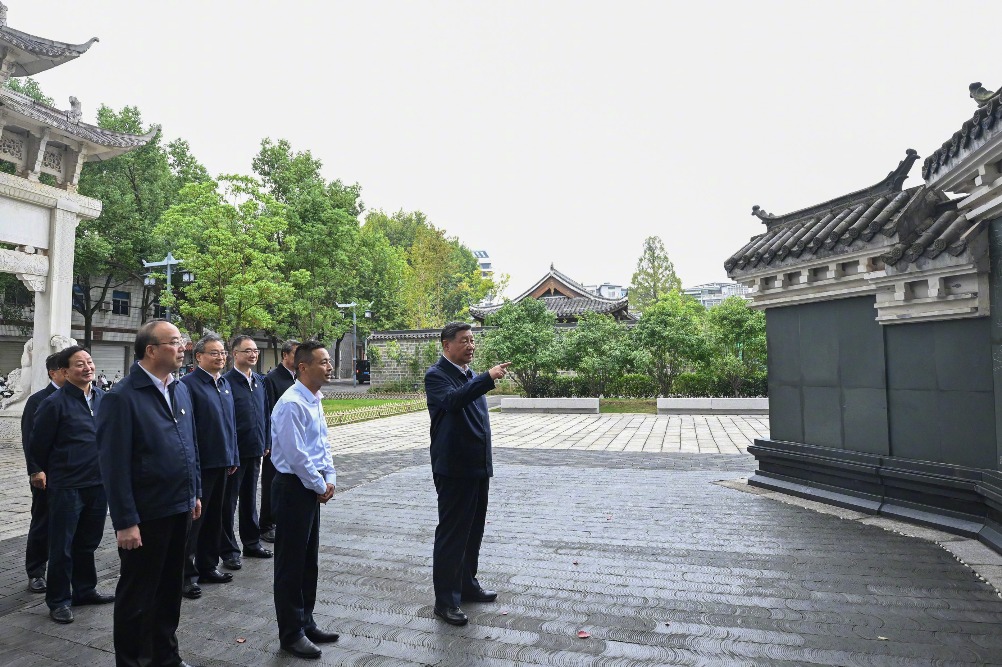Xiong'an — Welcome to the city of the future
New area enters next stage of high-quality development






Growing satisfaction
During the construction of Xiong'an, the top leadership urged implementing and refining policies and measures concerning children's education, healthcare, housing and other public welfare issues to fulfill the needs of residents.
Mi Yinuo, a first-year student at the Xiong'an branch of the Beijing No 4 High School, is getting some practical life lessons.
"It was quite interesting to gain some 'boring' insurance knowledge when we played monopoly in our elective course," she said. When she received "lucky money" for Spring Festival, she deposited it in a bank account to earn interest, rather than keeping it in a purse.
Twenty other elective courses including Pilates have been introduced, and various activities such as walking have been promoted on campus to nurture the children's all-around development, said the principal, Huang Chun.
The first intake of about 50 students has been enrolled since September. The teachers have mentors at the main campus in Beijing, which has regular interaction with the Xiong'an branch and provides support to ensure high-quality education.
"My son's outlook has grown in just one semester and he's now able to speak in public with more confidence," said Weng Junwu, father of one of the students.
A kindergarten and a primary school, both branches of Beijing educational institutions, also started recruiting students in September and aim to provide quality education for the relocated families from Beijing.
In addition, 15 Beijing universities will establish new campuses in Xiong'an, and four of them, including Beijing Jiaotong University, started construction in November.
Xiong'an has also seen an improvement in medical services, especially after the branch of Beijing-based Xuanwu Hospital, affiliated to the Capital Medical University, started trial operations in October.
"The hospital has opened 30 departments and expects to gradually open the inpatient wards and operating rooms and then the emergency room," said Liu Dongbin, deputy director of the branch.
The hospital has introduced innovations to improve its medical services, and the number of cumulative outpatient visits has reached approximately 35,000, he said.
Kang Hua, director of the hospital's breast treatment center, has witnessed the growing satisfaction of patients who also have easy access to experts from Beijing.
Weng Junwu said the improved medical services in the area, gave his family an assurance about living in Xiong'an where he hopes his son will eventually attend university.
"I'm honored to witness the overall improvement and grow with Xiong'an," he said.




















